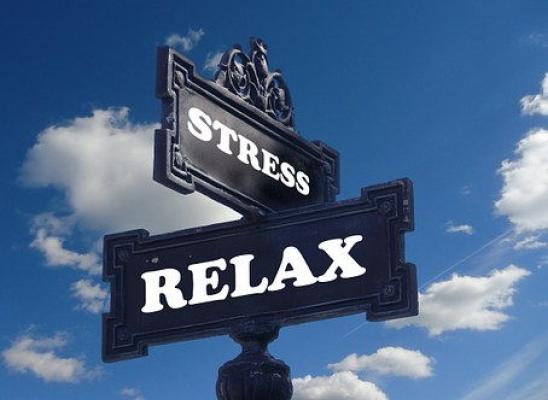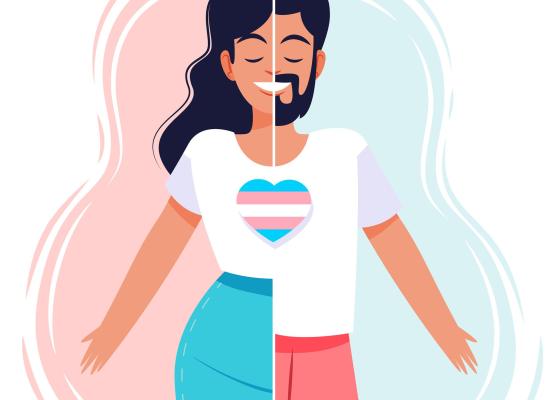The Childhood Trauma and Trichotillomania Connection

Online test
Find out the severity of your symptoms with this free online test
Just why someone develops trichotillomania isn’t entirely clear. Some research points to genetics or family history, stress, or the presence of other mental health disorders such as depression, anxiety of OCD. Age seems to be a significant factor as well since most cases of hair pulling and other BFRBs emerge in late childhood or the early teen years. However, age alone does not seem to be the deciding factor and there may be more to the story.
Early childhood trauma has also been associated with hair pulling and other BFRBs. In fact, it is not uncommon for people living with trich and other BFRBs like skin picking to also have a history of childhood trauma. A recent study found that traumatic events in childhood are positively correlated with Trichotillomania and nail biting. Early exposure to trauma seems to be particularly troublesome but just why is that and what can this mean for treating trich and other BFRBs?
Adverse Childhood Experiences
Early childhood is a time of tremendous physical, psychological, and emotional growth and development. During these formative years the brain is growing, and the child is learning how to operate in the world. Their experiences during this time help to shape their ability to cope with and navigate life’s challenges as they move towards adulthood.
Research has found that children who experience Adverse Childhood Experiences (ACES) such as abuse, neglect or other adversity can experience developmental impacts. Living in a state of fear or distress can cause changes in the brain as it struggles to adapt. Brain development, specifically areas related to logical thinking, memory, and emotional regulation can be impacted.
It is well-known that ACES are also linked to the development of mental health issues such as depression, anxiety, post-traumatic stress disorder (PTSD), and substance abuse as well as OCD. Certain types of adverse events seem to be more strongly associated with specific mental health issues. For example, one meta-analysis found that rates of depression seemed to be more strongly associated with emotional abuse. Substance abuse seemed to be more strongly associated with physical abuse than emotional abuse.
The timing of the adverse event may also affect the development of mental health issues and be related to the age of onset of trich.
- Some evidence suggests that early trauma exposure is associated with higher rates of PTSD and depression in adulthood. Those with earlier exposure (sexual abuse before the age of 12) were at greater risk of depression, while those with later exposure (after the age of 12) were at greater risk for developing PTSD.
- Other studies have found that there seems to be a peak period of vulnerability at about age 13-14 for developing dissociative symptoms with emotional neglect being the dominant influence followed by other traumas.
- Trauma during the preschool years (about age 3-5) seems to be a particularly vulnerable time and is associated with a higher risk for PTSD, depression, and suicidality than exposure at either 0-3 years old or 6-8 years old.
It seems that there may be sensitive “windows” when the experience of trauma can be particularly damaging. This has significant implications for the development and treatment of trich. Trich is known to have what’s known as a bimodal age of onset meaning that there are two distinct “peaks” or periods when onset is more likely: one at about 7-8 years old and a second at puberty.
Implications for Treatment
The study confirmed that trich and nail biting are indeed positively correlated with early childhood trauma:
- Subjects with trich tended to score higher on emotional neglect.
- Subjects with skin picking scored higher on history of childhood sexual abuse.
They do note that other adverse experiences such as physical or verbal abuse were also reported.
Adverse childhood experiences have been identified as a significant predictor of self-harming behaviors among adolescents. It is thought that self-harming behaviors are an attempt to regulate or manage their emotions related to their experiences.
Findings like these suggest that a trauma-informed approach may be an important consideration in providing care. This approach respects the history of the person and recognizes the effects of their experiences while avoiding re-traumatization.
While more research is needed in this area, recognizing the role trauma seems to play can aid the development of effective treatments that are sensitive to a person’s trauma history and address the person’s needs.
References
1. Özten, E., Sayar, G. H., Eryılmaz, G., Kağan, G., Işık, S., & Karamustafalıoğlu, O. (2015). The relationship of psychological trauma with trichotillomania and skin picking. Neuropsychiatric disease and treatment, 11, 1203–1210. https://www.ncbi.nlm.nih.gov/pmc/articles/PMC4440428/#b23-ndt-11-1203
2. Yasir, W., Sherin, M., & Kazmi, S. F. (2021). The Role of Childhood Trauma in Developing Nail Biting and Trichotillomania Among Adolescents. International Journal of Innovation, Creativity and Change, 15(2), 1314-1332. https://www.ijicc.net/images/Vol_15/Iss_2/17132_Kazmi_2021_E1_R1.pdf
3. Herzog, J. I., & Schmahl, C. (2018). Adverse Childhood Experiences and the Consequences on Neurobiological, Psychosocial, and Somatic Conditions Across the Lifespan. Frontiers in psychiatry, 9, 420. https://www.ncbi.nlm.nih.gov/pmc/articles/PMC6131660/
4. Gu, W., Zhao, Q., Yuan, C., Yi, Z., Zhao, M., & Wang, Z. (2022). Impact of adverse childhood experiences on the symptom severity of different mental disorders: a cross-diagnostic study. General psychiatry, 35(2), e100741. https://www.ncbi.nlm.nih.gov/pmc/articles/PMC9036421/
5. Barzilay, R., Patrick, A., Calkins, M. E., Moore, T. M., Gur, R. C., & Gur, R. E. (2019). Association between early‐life trauma and obsessive compulsive symptoms in community youth. Depression and Anxiety, 36(7), 586-595. https://onlinelibrary.wiley.com/doi/10.1002/da.22907
6. Norman, R. E., Byambaa, M., De, R., Butchart, A., Scott, J., & Vos, T. (2012). The long-term health consequences of child physical abuse, emotional abuse, and neglect: a systematic review and meta-analysis. PLoS medicine, 9(11), e1001349. https://www.ncbi.nlm.nih.gov/pmc/articles/PMC3507962/
7. Schoedl, A. F., Costa, M. C., Mari, J. J., Mello, M. F., Tyrka, A. R., Carpenter, L. L., & Price, L. H. (2010). The clinical correlates of reported childhood sexual abuse: an association between age at trauma onset and severity of depression and PTSD in adults. Journal of child sexual abuse, 19(2), 156–170. https://www.ncbi.nlm.nih.gov/pmc/articles/PMC3580171/
8. Schalinski, I., Teicher, M. H., Nischk, D., Hinderer, E., Müller, O., & Rockstroh, B. (2016). Type and timing of adverse childhood experiences differentially affect severity of PTSD, dissociative and depressive symptoms in adult inpatients. BMC psychiatry, 16, 295. https://www.ncbi.nlm.nih.gov/pmc/articles/PMC4992284/
9. Dunn, E. C., McLaughlin, K. A., Slopen, N., Rosand, J., & Smoller, J. W. (2013). Developmental timing of child maltreatment and symptoms of depression and suicidal ideation in young adulthood: results from the National Longitudinal Study of Adolescent Health. Depression and anxiety, 30(10), 955–964. https://pubmed.ncbi.nlm.nih.gov/23592532/
Online test
Find out the severity of your symptoms with this free online test
Start your journey with TrichStop
Take control of your life and find freedom from hair pulling through professional therapy and evidence-based behavioral techniques.
Start Now



